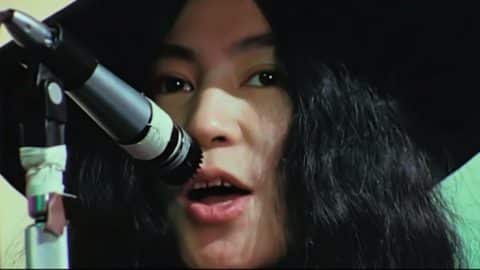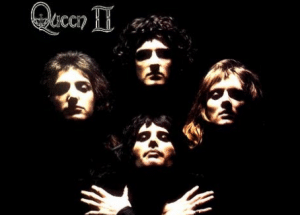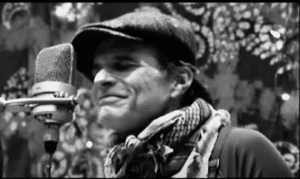Is There Such A Thing As A Good Yoko Ono Song?

Youtube / Chaise
Yoko Ono’s music isn’t easy to define—and that’s exactly the point. For decades, she’s crafted songs that challenge expectations, mixing raw emotion with experimental soundscapes. Her work doesn’t always aim to comfort; instead, it often asks listeners to sit with discomfort, to rethink what a “song” can be.
There’s something disarming about how freely she blends vulnerability with defiance. Some tracks feel like whispered confessions, while others erupt with unfiltered noise or primal chants. To many, her voice is polarizing—but to others, it’s a bold instrument of expression, unshaped by the conventions of melody or genre.
While it’s easy to focus on her role in Lennon’s life, it’s far more interesting to listen to what she created on her own terms. Her best songs aren’t just unusual—they’re honest, daring, and fiercely alive. And if you’ve ever wondered whether there’s such a thing as a good Yoko Ono song, these tracks just might shift your perspective.
View this post on Instagram
1. “Walking on Thin Ice”, Walking on Thin Ice (1981)
Few Yoko Ono songs have the emotional gravity of “Walking on Thin Ice.” Its icy synths, pulsing dance rhythm, and jagged guitar lines build a sense of both movement and danger. Yoko delivers her vocals with a mix of strength and vulnerability, embodying the lyrical tension about life’s unpredictability.
What makes the song even more haunting is its connection to John Lennon’s final moments. He recorded his guitar parts on the day of his death, lending the track an unintended but chilling legacy. The soundscape is sharp, dramatic, and perfectly titled — a sonic metaphor for how fragile things can be.
This track remains one of Yoko’s most acclaimed pieces, earning her a spot on the Billboard Hot 100. It’s not just a historical artifact; it’s a bold, genre-bending song that stands tall on its own. “Walking on Thin Ice” proves she could craft pop music with edge and meaning.
2. “Death of Samantha”, Approximately Infinite Universe (1973)
“Death of Samantha” strips everything back to the essentials: a raw voice, a sparse piano line, and a heavy heart. Written after a personal argument with Lennon, the track channels betrayal and disillusionment in a way that feels both poetic and brutally honest.
Yoko’s voice doesn’t aim for perfection — it leans into fragility. That’s what makes it hit harder. The delivery is intimate, as if she’s letting listeners read pages from her private journal. It’s a reminder that her artistry has always been more emotional than polished.
Among her most autobiographical works, this song showcases her skill in turning everyday heartbreak into art. With its minimalist production and aching vocal, “Death of Samantha” stands as a powerful ballad of personal pain and quiet resilience.
3. “Kiss Kiss Kiss”, Double Fantasy (1980)
This track is a rollercoaster of sound — from whispered beginnings to bursts of punk-pop chaos. “Kiss Kiss Kiss” may have shocked some fans when it debuted on Double Fantasy, but it’s now recognized for its fearless experimentation.
Yoko plays with vocal textures, combining erotic moans, screams, and playful Japanese phrases into a vibrant sonic collage. The song never sits still, and neither does the listener. There’s a kind of sonic mischief here that feels ahead of its time — raw, confrontational, and fun.
In the context of early ’80s music, it was wildly unconventional. But that’s what makes it great. It’s not just a song — it’s a performance piece that challenges pop conventions and pushes the boundaries of what a love song can sound like.
4. “Born in a Prison”, Some Time in New York City (1972)
Off the Some Time in New York City album, “Born in a Prison” stands out as one of Yoko’s strongest political commentaries. It’s a song about systemic control — schools, government, and culture shaping people’s lives before they realize it.
The melody is steady and grounded, almost like a protest march. Yoko’s vocal is calm but forceful, delivering each line with conviction. The lyrics ask unsettling questions, encouraging listeners to rethink ideas about freedom and societal norms.
Though it was polarizing at release, the track has grown in relevance. Its message still resonates with those disillusioned by institutional life. It’s a protest song wrapped in simplicity, showing how Yoko could spark complex discussions using just a few carefully chosen words.
5. “Yes, I’m a Witch”, Yes, I’m a Witch (2007)
“Yes, I’m a Witch” is Yoko in full control — not asking for validation but declaring her identity unapologetically. She confronts judgment and turns it into defiance, embracing the label of “witch” as a symbol of power rather than shame.
The production leans into gritty electronics and looping riffs, creating a hypnotic atmosphere. Her vocal cuts through with clarity, sometimes whispered, sometimes shouted. The song feels less like a performance and more like a declaration — bold, rhythmic, and unflinching.
This track inspired a remix project over a decade later, proving its lasting influence. Artists from different genres found something magnetic in it. “Yes, I’m a Witch” stands as a reminder that Yoko’s work can be both personal and universally empowering — especially for anyone who’s ever felt misunderstood.
















